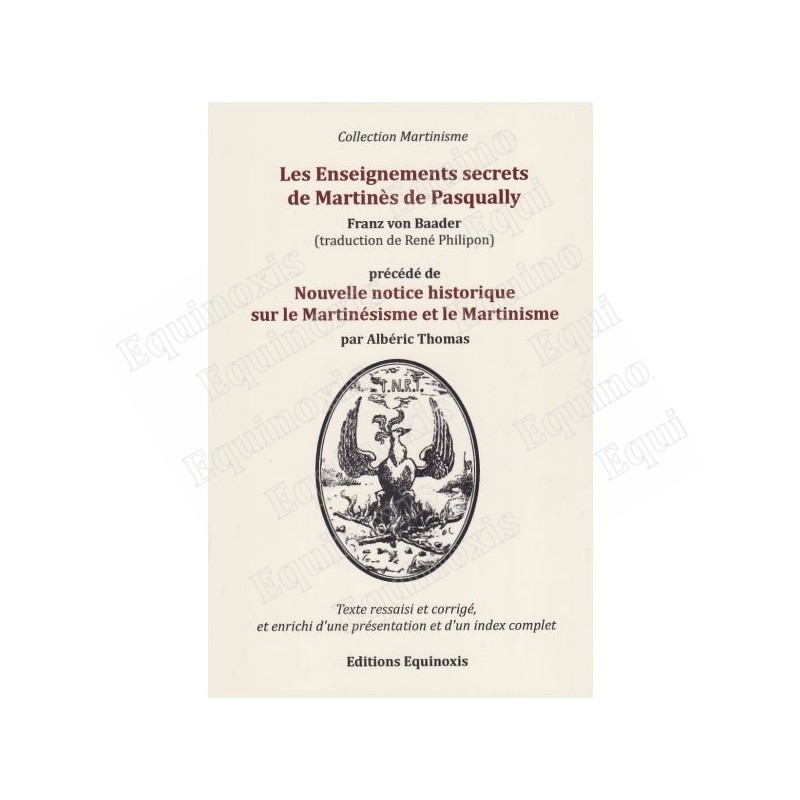




Les Enseignements secrets de Martinès de Pasqually (traduction de René Philipon)
Précédé de Nouvelle notice historique sur le Martinésisme et le Martinisme par Albéric Thomas
Franz Xaver von Baader commença des études médicales à l'université d'Ingolstadt à l'âge de 16 ans avant de les poursuivre à Vienne et d'assister son père médecin de la cour. Délaissant la médecine, il se tourna vers l'étude de la géologie et du génie minier, dans lequel il fit carrière tout en consacrant le reste de son temps à la philosophie et à la théologie. Il se retira en 1820. En 1826, il fut nommé professeur de philosophie et de théologie spéculative à l'Université de Münich qui ouvrait ses portes et conserva sa chaire jusqu'en 1838.
Profondément inspiré par le mystique protestant Jakob Böhme, par Louis-Claude de Saint-Martin, Swedenborg, Maître Eckhart et saint Thomas d'Aquin, Franz von Baader chercha à concilier la philosophie avec les dogmes du catholicisme au moyen de doctrines mystiques empreintes d'ésotérisme.
Également Maçon, il fut Vénérable de la Loge Théodore au Bon Conseil, instituée à Münich en 1775 par la mère-loge Royal York. Ce fut lui qui initia le fondateur des Illuminés de Bavière, Adam Weishaupt, sans se douter des desseins cachés de celui-ci. Victime, comme bien d'autres, de son habile prosélytisme, il ne tarda pas à faire son entrée chez les Illuminés sous le nom de Celse. Le 22 juin 1784, une ordonnance de l’Électeur de Bavière interdisant toute confraternité secrète fut promulguée, et la Franc-Maçonnerie et l'Illuminisme furent proscrits sur-le-champ. Baader, pourtant bien innocent de toute visée complotiste, fut cependant inquiété par la justice.
Considéré comme l'un des plus grands théosophes allemands, ayant influencé nombres de philosophes tels Hegel, Schlegel, Wilhelm von Humboldt ou Schelling, Baader demeure d'une approche éminemment difficile à cause de son style très particulier où se côtoient aphorismes, mots étrangers ou inventés, phrases longues à la construction alambiquée, et symbolisme ésotérique. Parmi son œuvre, rassemblée en 16 volumes par ses disciples sous la direction de Franz Hoffmann, Leipzig, 1851-1860, on distingue plus particulièrement son traité de l'Extase (1817), Fragmenta Cognitionis (1822-25), Leçons sur la philosophie religieuse (1827), Dogmatique spéculative, et l'Idée chrétienne de l'immortalité (1836).
Texte ressaisi et corrigé, et enrichi d'un index complet
126 pages
ISBN : 978-2-37092-037-9




check_circle
check_circle